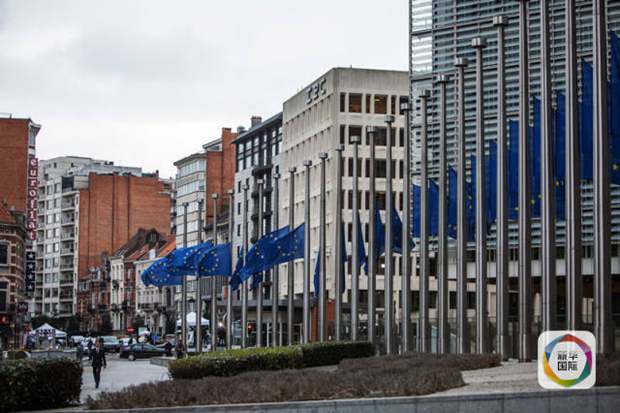The future of Sino-European relations
- By George N. Tzogopoulos
 0 Comment(s)
0 Comment(s) Print
Print E-mail China.org.cn, July 20, 2018
E-mail China.org.cn, July 20, 2018

The 20th China-EU summit was successfully convened in Beijing. It constituted another opportunity for the leadership of the two sides to reaffirm their commitment to deepening collaboration for peace, growth, reform and civilization.
According to the official statement, the fields of cooperation will include consultations on foreign policy about Africa, Asia, the Korean Peninsula, Latin America and the Middle East, exchanges on human rights, dialogue on WTO reform, bilateral trade and investment, cybersecurity, high food safety standards and environmental protection as well as talks on the improvement on the governance of migration. Overall, the statement contains 44 points as well as an annex on climate change and clean energy.
Every reference made to Sino-European relations should start with China's fundamental position vis-à-vis the EU which is its support for European integration. China's 2003 policy paper on the EU, for instance, concentrates on the importance the former attaches to the role and influence of the latter in regional and international affairs.
Fifteen years later Chinese President Xi Jinping repeated to European Council President Donald Tusk and European Commission President Jean-Claude Juncker that the Chinese side would always regard the EU as an important force for stability and development of the international structure. Indeed, the Chinese administration did publicly speak in favor of European integration in particularly difficult moments of its recent history when Grexit was on the Eurozone agenda in 2015 and the Brexit referendum took place in 2016.
The fifteenth anniversary of the China-EU Comprehensive Strategic Partnership was celebrated a few days ago in Beijing. Of course, China is now much more powerful in comparison to 2003 while the EU is encountering significant internal problems as a result of the economic and the refugee crisis. Still, the two sides can "be both builders of world peace, contributors to global development and defenders of the international order" in the words of Xi. These words are even more significant in the era of Donald Trump. The world needs synergies and – in that regard – the harmonious evolution of Sino-European relations cannot but constitute good news.
However, disagreements between China and the EU do exist. For many years, for example, Beijing has been calling upon Brussels to lift its ban on arms sales and remove barriers on the defense industry and technology cooperation. From China's perspective, the EU has benefited from China's financing role during the debt crisis but is currently concerned about future repercussions while the Belt and Road Initiatives is being rolled out. The EU is therefore finding ways to protect its interests which is causing frustration for China.
Some recent examples can be given. At the end of 2016 the EU did not recognize China's Market Economy Status. In September 2017 Juncker – following the advice of German Chancellor Angela Merkel – launched a new European screening mechanism policy aiming at filtering alleged motivations of Chinese state owned enterprises which seek to invest in the Old Continent. And in December 2017 the EU put in place new trade defense rules, targeting China at first "because the bulk of [its] anti-dumping activity concerns imports from that country." The official Journal of the EU is full of investigative cases of Chinese companies.
Among other things, the EU wants to gain some time until it develops its own strategy on connecting Europe and Asia. The EU Ambassador to China Hans Dietmar Schweisgut expects it be released in the next months after the European Commission has received relevant feedback. Brussels is in the process of elaborating on a practical counterweight to the Belt and Road Initiative. On the one hand, it wants to create more business opportunities for European companies and on the other hand, to possibly derail some of the Chinese ambitions.
Under these circumstances, China and the EU need to find synergies in the medium-and long-term. Beijing favors compromising solutions. Of course, its stance is more constructive than that of Brussels because the latter rather prefers to employ a reactive approach. Also, Beijing is more straightforward whereas Brussels remains very general. Trade negotiations will be difficult but fruitful.
George N. Tzogopoulos is a columnist with China.org.cn. For more information please visit:
http://www.china.org.cn/opinion/GeorgeNTzogopoulos.htm
Opinion articles reflect the views of their authors, not necessarily those of China.org.cn.






Go to Forum >>0 Comment(s)